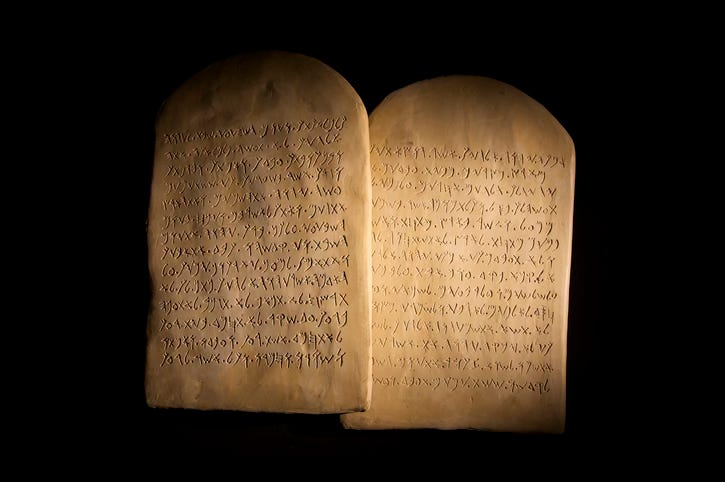Atheist Conversion, What Morality?, Israel-Hamas War
Links of a somewhat more controversial nature.
Why I am now a Christian: Atheism can't equip us for civilisational war, by Aayan Hirsi Ali (UnHerd)
This testimony concentrates not on personal piety—forgiveness of personal sin, accepting Jesus as Lord and Savior, and so forth—but on Christian faith as the bulwark against what she calls a war for civilization. Many critics faulted her for not moving along more devotional lines, but I tend to agree with the opinion expressed in the piece below:
In Defense of Ayaan Hirsi Ali’s Conversion, by Sohrab Ahmari (The American Conservative).
History reminds us that people enter Christianity through all sorts of doors, from the devotional to the artistic to the political and beyond—and that it still sticks. That being said, I’m guessing that Ali’s conversion had many dimensions.
What Morality?
David Brooks' Moral Formation Without Morals: There is no substitute for the Protestant religious and moral core of America, by Aaron Renn (Aaron Renn Substack).
Contrary to much commentary, Renn is not happy about Brooks’ recent and widely read essay in The Atlantic, “How America Got Mean.” He says that Brooks argues for a more or less general morality, but that this is not enough. Morality must be grounded in a particular religious tradition, and naturally Renn argues for the Judeo-Christian tradition. I’m not sure Brooks would disagree, because I’m guessing he made his argument to appeal to the widest possible audience (which Renn duly noted). Introducing the religious theme might have distracted readers. But all in all, I tend to agree with Renn, though I am grateful to Brooks for raising the topic so eloquently.
Israel-Hamas War
I’ve hesitated to link to articles on this conflict, wanting to see how things begin to shake out. I found the following two pieces especially relevant in light of how events have unfolded.
It’s not hard to find fault with some Israeli policies and politics (settlements as one example). But the sheer evil of October 7—the brutal slaughter of innocents, along with the gloating—well, if there ever was a case for a just war (against Hamas, not Palestinians in general), this is it.
This first piece below, contra to Renn’s argument, doesn’t ground the morality of this war in religion; it is written by a renowned atheist:
The Bright Line Between Good and Evil: It is crucial to understand what our enemies actually believe, by Sam Harris (The Free Press).
The second piece reminds us of a different reality:
Once again, Jews are feeling very much alone, by Yossi Klein Halevi (The Globe and Mail).
I spent a lot of time in Jewish-Evangelical dialogue in my career, which deepened my understanding of the history and ethos of Judaism. Again, this doesn’t preclude sympathy for Palestinians and their suffering. As Halevi put it:
… now we are at one of those defining moments in Jewish history when we find ourselves at a moral disconnect with much of the international community. As we struggle to absorb the enormity of the Oct. 7 massacre and to confront the worst wave of antisemitism since the Holocaust, the trauma of aloneness has returned….
Yes, many Jews readily acknowledge, Israel bears its share of the blame for this hundred-year conflict. So do Palestinian leaders, who rejected every peace offer ever put on the table.
But for all the complexity of the Palestinian-Israeli tragedy, this is not a complicated moment. The suffering of innocent Gazans deserves the world’s urgent attention, but not at the expense of moral clarity about the justness of this war.
I suspect this theme will elicit commentary, but as usual, I will take a heavy hand in excluding comments that inflame rather than inform. So please remember you are writing to flesh and blood human beings (which includes me) who have come to their own conclusions thoughtfully and prayerfully.
Grace and peace,
Mark
Note: No PV next week as I’ll be spending Thanksgiving break with family in the Rockies!
Photo credit: iStock



Thanks for this ensemble of helpful reflections.
After reading Ali's essay, I agree with you that she has become a serious Christian. She admits to being a learning and growing one!!
Esther Aikens